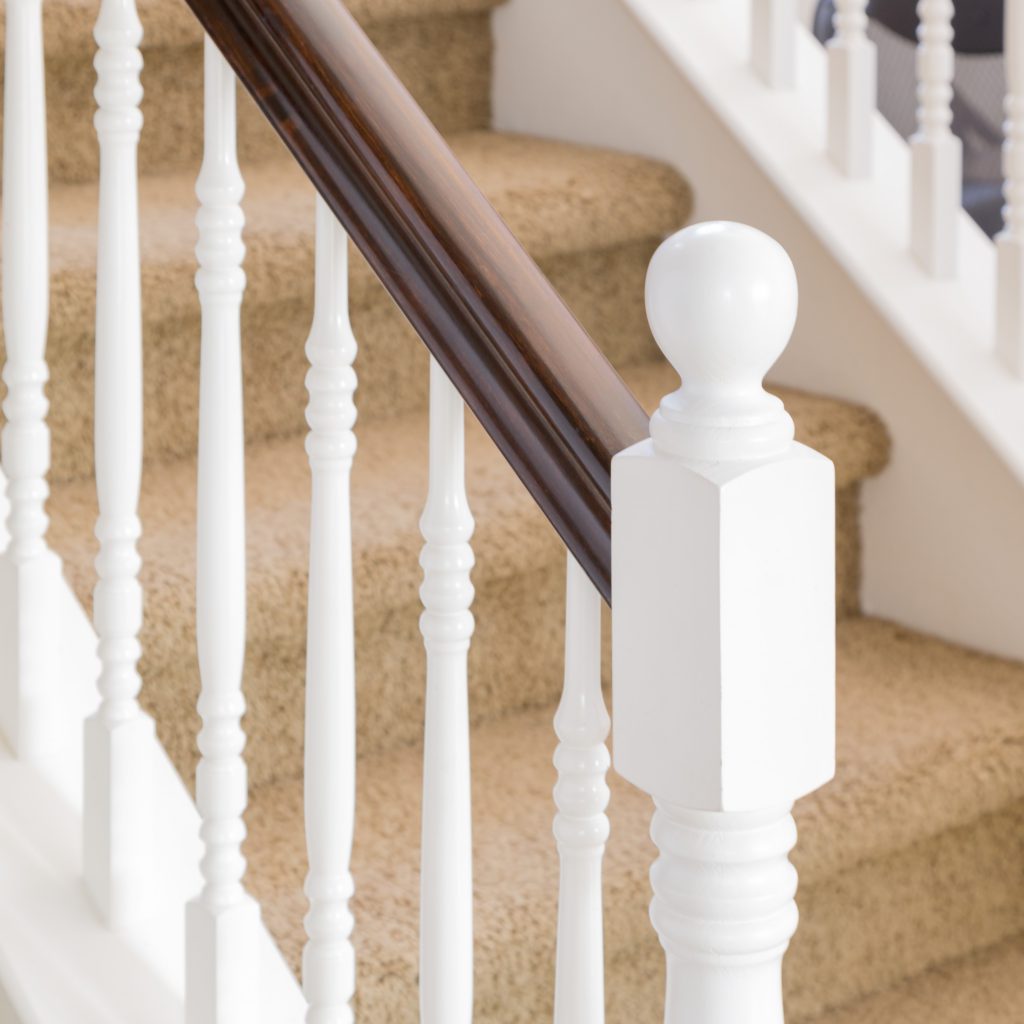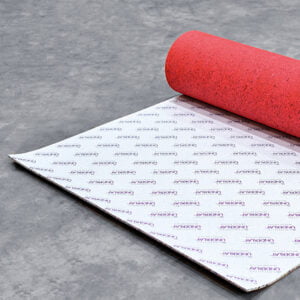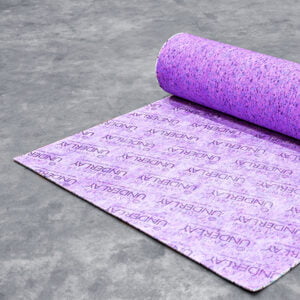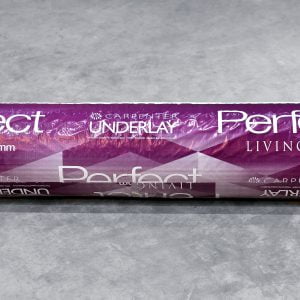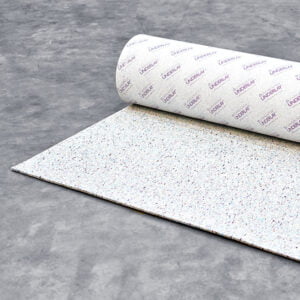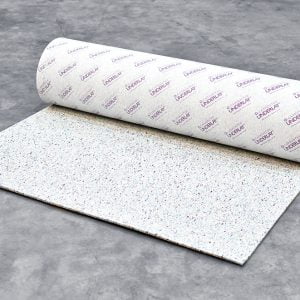When laying underlay on the stairs, you need to make sure you choose the correct product suited for the job.
So, in this article, we’re explaining why you need different underlays for the stairs in comparison to, say, the lounge or bedroom.
We’ll also tell you what features to look out for and why, so you can be sure to choose the best underlay for your stairs.
After that, we’ll look at common questions such as do I even need underlay? And how to work out the area of the stairs.
So, let’s dive straight in…
Why are stairs underlays different?
Stairs need 9mm thickness or less
The most important thing to look out for when fitting underlayment on steps, is the thickness of the product.
For it to go neatly round each step, you need to choose a 9mm thickness or less. That’s because any thicker than 9mm, then it won’t go over the steps neatly.
Higher density is important
It’s fair to say that, in most homes, the stairs receive much more thudding than the other rooms. The higher the density, the more thudding the underlay will be able to take over a prolonged period of time. Note though, that a higher density also gives the product a firmer feel.
For most homes, 100kg/m3 in density will be just right. However, if you’re fitting in a large family home or a large shared house, it would benefit in cost to go for a slightly higher density.
With all the intense usage, you want to choose a product with a good density
So, which products work best on the stairs?
When doing your product research, choosing your stairs underlay can be confusing. We’ve simplified it by giving you 3 different options depending on budget.
Option 1: Perfect Living 9mm Thickness
Density: 100kg/m3
Your best option is our Perfect Living 9mm from Carpenters UK. It’s high density and 9mm thickness mean. It offers better sound reduction (measured in decibels) from thudding and walking, as well as offering better insulation rating (measured in tog). A great choice for small families or homes which get a bit colder in the Winter.
Option 2: Carpenter Rich Step 9mm Thickness
Density: 125kg/m3
A more superior choice than both the above would be our Carpenter Rich Step 9mm, This one has a higher density of 125kg/m3 and therefore offers better protection for the carpet, particularly good for thinner carpet to extend it’s lifetime or more expensive carpets that have a long lifetime. Also a popular choice for homes with 4 or more people in it.
Option 3: Carpenter Ultra Step
Density: 180kg/m3
Finally, if you want a much more superior product, then the Carpenters Ultra Step might be the choice for you. It offers a whopping 180kg/m3 in density, meaning it gives unrivalled protection from extreme usage.
All the products mentioned above are 100% recycled and manufactured right here in the UK.
Best selling stairs underlay
-
Hard Wearing
Carpenter Rich Step 9mm Carpet Underlay
- £3.30 – £329.70
- Select options This product has multiple variants. The options may be chosen on the product page
-
Carpenter Perfect Living 9mm Carpet Underlay
- £2.68 – £267.75
- Select options This product has multiple variants. The options may be chosen on the product page
-
Extreme Usage
Carpenter Ultra Step 9mm Carpet Underlay
- £4.42 – £442.05
- Select options This product has multiple variants. The options may be chosen on the product page
Now you’ve seen the options, let’s work out how much you’re going to need.
How to calculate how much underlay you need for the stairs
When measuring any room, it’s important to add on a bit of coverage because it’s always better to purchase slightly more than not having enough.
Below is a detailed explanation but you might also want to use this handy stair calculator
Calculating underlay for the stairs is easier than you might think:
- Measure the width of the step
- Add the vertical height and the tread depth together
- Multiply the width by the total of height + depth in metres
- Add on 10% to the total area of one step (multiply by 1.1)
- Multiply the total figure by the number of normal steps.
- Add on the area of any large steps
- Remember to add on landing or hallway area if you’re fitting new floor there too.
Here’s an example
Width = 80cm
Depth = 25cm
Height = 20cm
Number of steps = 14
Area of one step
0.8 x (0.2+0.25) = 0.36m2
0.36 x 1.1 = 0.4m2
Area of all steps
0.4 x 14 steps = 5.6m2
Add Large step area
0.8 x 0.8 = 0.7m2
Total area
All steps plus large step
5.6 + 0.7 = 7.3
Download our FREE Underlay decision tool
Be sure to choose which underlay is best for your needs.
Find the right underlay product based on floor type, warmth rating, soundproofing or thickness.
See which products are best for which room or stairs
Do you even need underlay for stairs?
Underlay is not just for comfort, it also absorbs the shock from foot traffic. As the stairs usually receives the highest foot traffic, underlay is essential for this area.
Some people want the thickest underlay for this area to absorb the high foot traffic, but this is not always the case.
Because of the structure of stairs (the unusual shape and crevices), the balance of thickness and practicality can be a hard one to perfect.
Is 11mm underlay too thick for the stairs?
Yes 1mm is too thick for stairs. Due to fitting purposes, 9mm is the optimum thickness.


